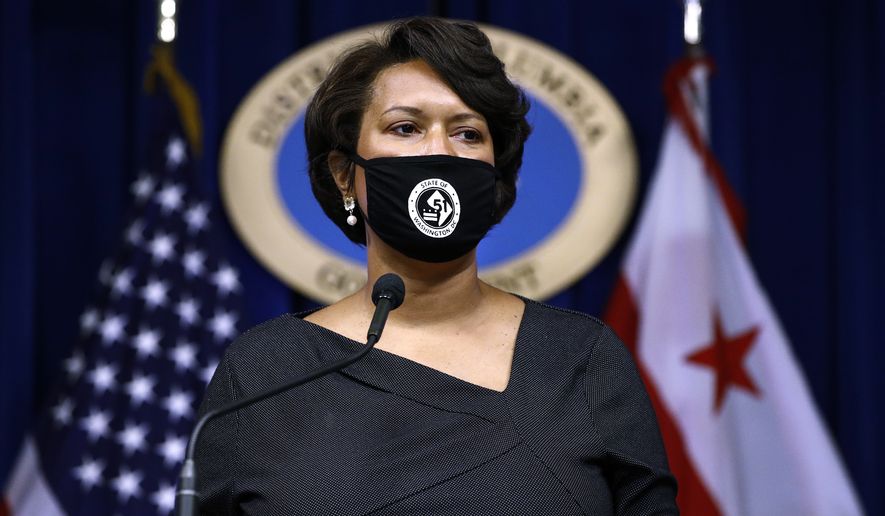D.C. Mayor Muriel Bowser said Tuesday she is not worried that her administration’s new vaccine passport mandate will hurt city businesses by driving customers into Virginia and Maryland.
“We know that there are many residents who like to have a safer environment to go to the restaurants and to do all of those things. And we know that we have a very high vaccination rate in the region,” Miss Bowser told The Washington Times. “So, we’re simply asking people to show their cards, and then they will take advantage of all that we have to offer, which is different, than many other places.”
Under the new mandate, people are required to present proof of their coronavirus vaccination status to enter public venues. Businesses also must display signs telling customers that they must show their vaccination cards for entry.
However, residents, commuters and tourists need only to travel to the Maryland or Virginia suburbs to patronize establishments without having to present proof of vaccination.
What’s more, localities in Virginia are barred from mandating a vaccine passport. And Gov. Glenn Youngkin, a Republican, has rolled back vaccine mandates for public employees.
Asked how she has contended with Virginia’s laxer COVID-19 rules, Miss Bowser said: “As you know, we had this discussion a few weeks back when, when discussing masks. We’ve had different levels of being open since June. What we have determined, what’s best for the District is that we have policies that get D.C. residents vaccinated.”
Since Saturday, indoor D.C. facilities such as restaurants, nightclubs, gyms, conferences, sporting venues, live concerts, coffee shops and movie theaters must now ask their patrons for proof of at least one dose of a vaccine. By Feb. 15, patrons who received the Moderna and Pfizer vaccines must show proof of two doses.
The District’s Alcoholic Beverage Regulation Administration has dispatched teams of inspectors to enforce the Democratic mayor’s policy at Alcohol Beverage Control-regulated businesses.
“Most of the ABC establishments are familiar with [the inspectors]. They are responsible for enforcement for all manner of issues, and so they go into the establishments to see if they need any support,” Miss Bowser said. “I would say that most of the work that the inspectors do is kind of random. I’m sure that there are times when they schedule appointments, but most of them they’re kind of walking through during their tour duty.”
• Kerry Picket can be reached at kpicket@washingtontimes.com.




Please read our comment policy before commenting.